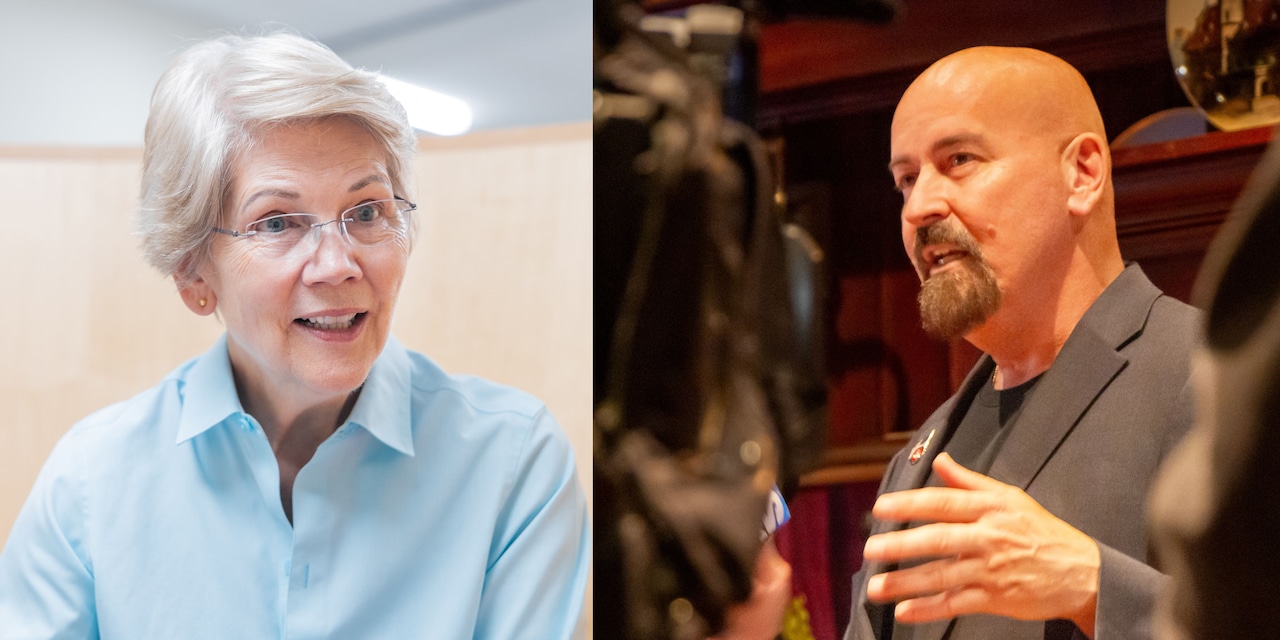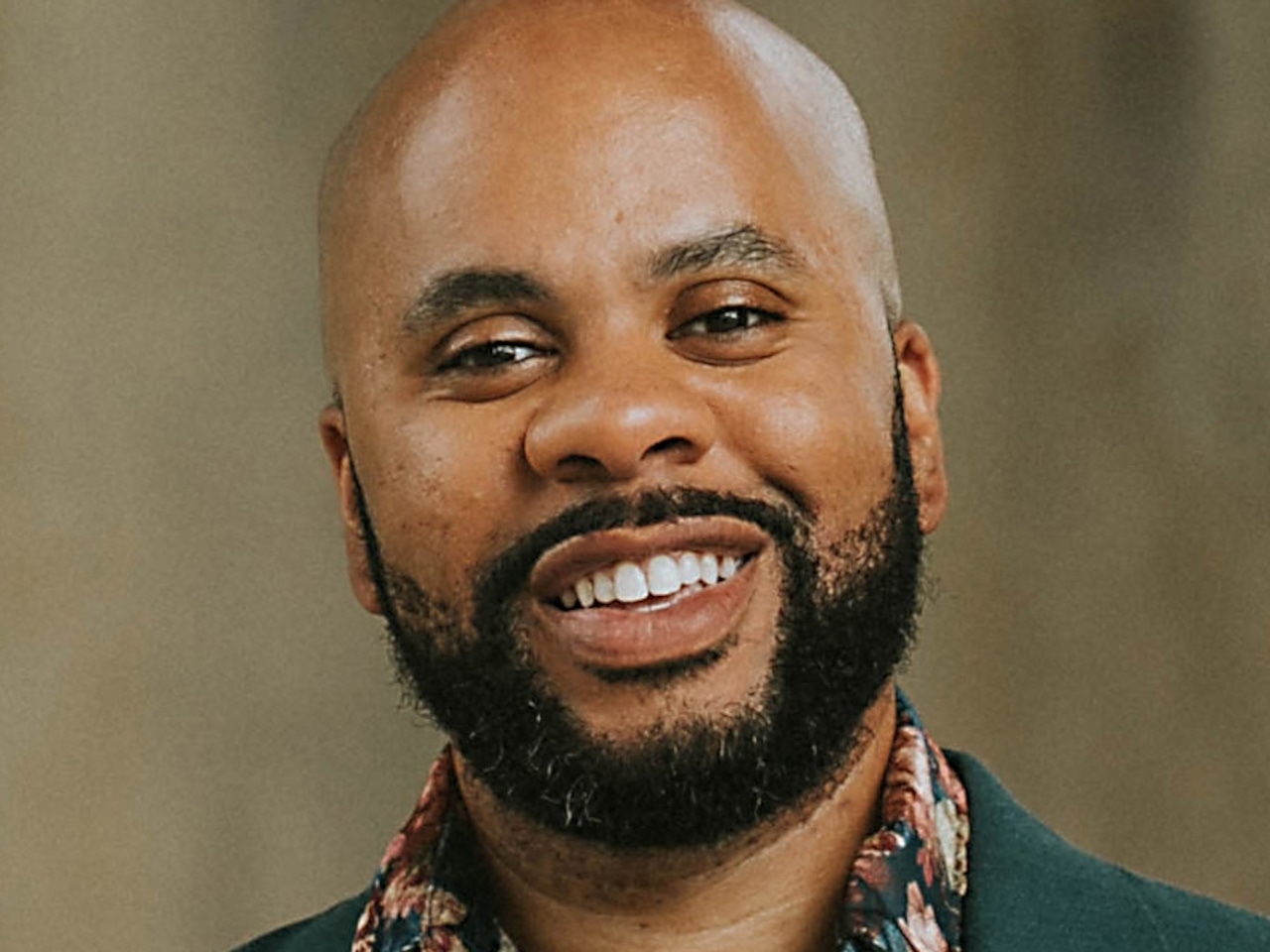
When it comes to the fall U.S. Senate campaign pitting Democratic incumbent Sen. Elizabeth Warren against Republican cryptocurrency lawyer John Deaton, two things can be true at the same time.
First, it’s true that Deaton, of Swansea, who coasted to a win in Tuesday’s GOP primary election, will face an uphill battle against Warren of Cambridge, a deeply entrenched and well-funded pol, who’s running for a third term in heavily Democratic Massachusetts.
But it also is the case that the race might not be a romp for Warren.
It’s already shaping up to be an expensive, competitive, and aggressive one, as the rhetorical barbs fired between the two camps in the hours after the polls closed Tuesday made clear.
Democrats have attacked Deaton’s residency and his ties to the cryptocurrency industry. Deaton has painted Warren as out-of-touch with Bay State voters.
And, in a time-honored rite of campaign season, there’s already a debate over, well, debates.
More on the latter in a minute. First up, the crypto-question.
Deaton entered Tuesday’s three-way primary contest against conservative activist Robert Antonellis and Quincy City Council President Ian Cain buoyed by a wave of cash from the cryptocurrency industry.
Deaton defended tech firm Ripple Inc. in a high-profile court fight with the U.S. Securities & Exchange Commission. The SEC accused Ripple of selling XRP in an unregistered security offering, according to Investopedia.
In his memoir, “Food Stamp Warrior,” Deaton explained his support for, and interest in, cryptocurrency, saying the industry’s story is “one much like my own: it is a story of survival and evolution, not just for the few but for the many.”
“The more I learned about it, the more I realized that our entire financial world sat on a precipice. This was something important,” he wrote. “A whole new world was about to be born, and the powers that be did not want us to know about it.”
The industry took note, pumping serious cash, in the form of direct contributions and super PAC support, into Deaton’s campaign.
Warren, meanwhile, is an avowed critic. So the industry is looking to replace what it sees as a hostile regulatory voice with a far friendlier one.
“ … The SEC, under its current chair, Gary Gensler, has asserted that most cryptocurrencies are securities that need to be registered as such. And the industry has not done this,” Lee Reiners, a lecturing fellow at the Duke Financial Economics Center and Duke University School of Law, told MassLive.
In a fundraising email on Wednesday, Warren aimed at the industry, charging that it “bought the GOP nomination, and now [it’s] trying to buy this U.S. Senate seat.”
“But I’ve got news for them: Massachusetts is not for sale,” Warren continued.
State Democratic Party officials similarly went on the attack on Wednesday, describing Deaton, a Rhode Island transplant, as a “carpetbagger” with “shadowy” ties to Big Tech.
Deaton, who moved to the Bay State earlier this year, has argued that he has Masshole cred to match any pol.
He’s also sought to portray himself as the pragmatic alternative to what he said is Warren’s Ivy League elitism.
“Voters are turning their back on divisive partisan politics and are ready to support a message of optimism, unity, and solving problems,” Deaton wrote in a post to X on Tuesday night.
That might be true, but it’s still going to be a tough sell, according to one veteran observer.
“Massachusetts is a challenge for any Republican to win,” Boston-based Democratic analyst Mary Anne Marsh said. “In a presidential election, it is impossible. That is what John Deaton faces. The fact that Kamala Harris and abortion rights are on the ballot too is the accelerant that no one can stop.”
Still, Warren’s campaign is taking Deaton seriously.
On Tuesday night, the Democrat announced that she’d agreed to two debates in October in Boston and Springfield.
Usually, it’s the challenger clamoring for those kinds of confrontations, which provide both free airtime and the opportunity to catch the incumbent in a flub.
In a statement, Warren’s campaign manager, Janice Rottenberg, sticking with the cryptocurrency line of attack, said voters “deserve a substantive policy conversation about abortion rights, the Supreme Court, funding for Medicare and Social Security, and other issues critical to our country’s future.”
Deaton, who went through an extensive round of debates on his way to the GOP nomination, parried, proposing five, single-issue face-offs with Warren before Election Day on Nov 5.
Two debates or five, Deaton needs the exposure if he hopes to stay competitive and build critical name recognition for a general election audience.
A June UMass/WCVB-TV poll highlighted the problem. A third (36%) of its Republican and unaffiliated respondents said they didn’t know which of the three GOP hopefuls to support. None of the GOP hopefuls polled above 19%.
Warren also led Deaton 47%-24% in a hypothetical head-to-head match-up in the same poll.
“He needs to run all-out, everywhere in the state, including Western Mass., where we have not seen much of him,” political consultant Tony Cignoli said. “He needed to be running a year ago like the election is tomorrow.”
On Election Night, Deaton told his supporters in an email that the fall campaign marked the start of an “effort that will hold Elizabeth Warren accountable for her failures on the border, the unaffordable cost of supporting a family, a broken healthcare system, abandoning our ally Israel, and restoring faith in our politics.”
And there are just 60 days left to seal the deal.






